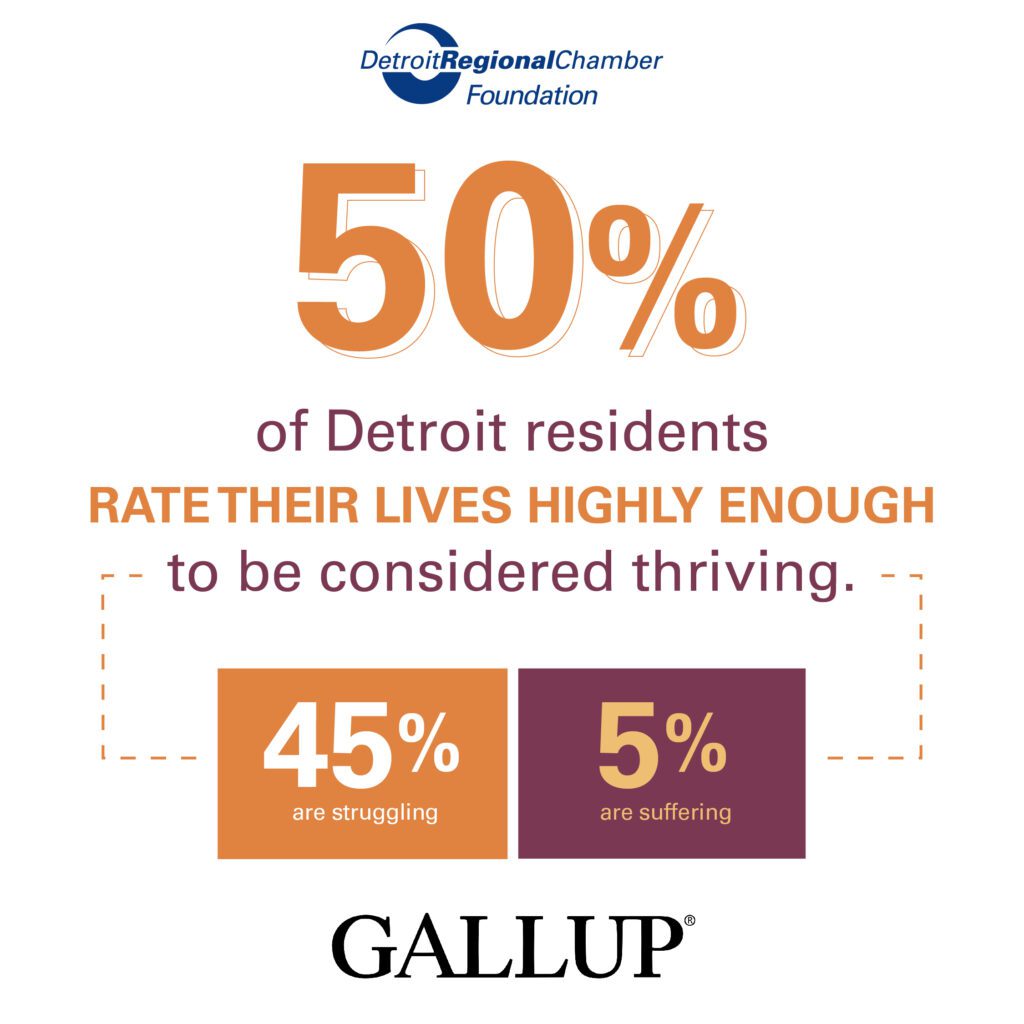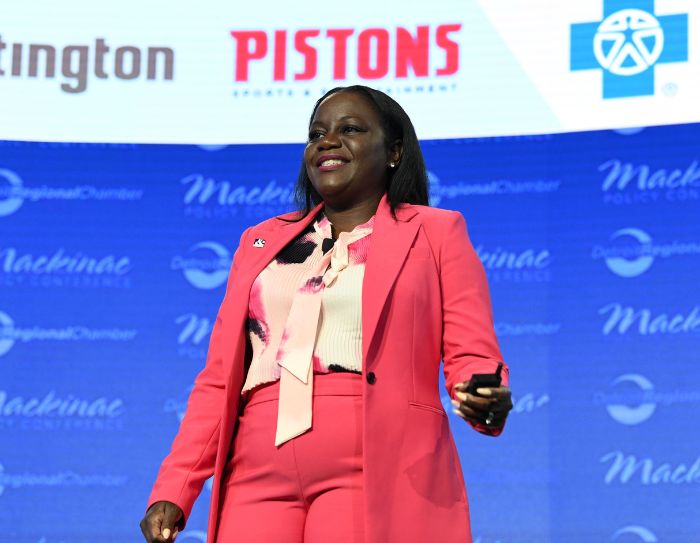By Camille Lloyd
Half of Detroit residents rate their lives highly enough to be considered thriving – but just as many are struggling (45%) or suffering (5%), according to the first Detroit Resident Voices Survey.
 Residents who are struggling or suffering in their well-being are disproportionately Black and Hispanic Detroiters and are more likely to live in the city of Detroit as opposed to the Detroit Region’s areas outside the city. They are less satisfied with key institutions of their community, have greater rates of health ailments, and are less likely to believe in their personal ability to get ahead.
Residents who are struggling or suffering in their well-being are disproportionately Black and Hispanic Detroiters and are more likely to live in the city of Detroit as opposed to the Detroit Region’s areas outside the city. They are less satisfied with key institutions of their community, have greater rates of health ailments, and are less likely to believe in their personal ability to get ahead.
But despite all their challenges, most residents who are struggling and suffering recommend Detroit as a good place to live.
Based on more than 11,000 respondents in the Detroit Region, the survey – which was the first hyperlocal, city-specific survey of its kind by Gallup – highlights the key determinants of Detroiters’ well-being:
- Education and economic opportunity: Residents’ perception that they have what they need to achieve their career and financial goals are among the items most strongly related to their overall life evaluations.
- Healthy and safe environments: With less than half of city residents saying it is easy to access high-quality healthcare services in their area, future surveys could help identify the specific barriers to access, which may include lack of health insurance, healthcare staffing shortages, transportation, or work-related issues. A healthy environment is also one with easy access to healthy food. It is also one in which people feel safe spending time outdoors on recreation, which is not currently the case for about seven in 10 city residents.
- Social connectedness: With no more than a third of Black and Hispanic city residents agreeing that people in their community care about each other, many likely feel they live in an inhospitable environment where neighbors keep largely to themselves. One relatively low-cost way to improve city residents’ quality of life may be by helping them help each other.
Localized Research Critical to Driving Effective Collective Action
 This research has already begun to serve as the basis for dialogue that leads to new collaborations on issues central to Detroiters’ quality of life. Evaluating the impact of such projects on Detroiters’ lives requires taking residents’ voices and experiences into account and establishing data metrics to track the impact of collective efforts to improve equity and provide insights leaders can use to develop programs and initiatives.
This research has already begun to serve as the basis for dialogue that leads to new collaborations on issues central to Detroiters’ quality of life. Evaluating the impact of such projects on Detroiters’ lives requires taking residents’ voices and experiences into account and establishing data metrics to track the impact of collective efforts to improve equity and provide insights leaders can use to develop programs and initiatives.
This premier research effort with The Gallup Center on Black Voices localizes the approach to advancing racial equity by bringing resident voices to the table. We are proud to begin this work in Detroit and are grateful to the Detroit Regional Chamber and the numerous other local data and equity-focused entities for their partnership in creating a framework that can be leveraged by many other cities.
Beginning this type of research in Detroit is key to being able to create a new way to make inclusive policy that includes residents themselves.

Camille Lloyd
Camille Lloyd is the Director of The Gallup Center on Black Voices. The Detroit Regional Chamber and Gallup unveiled the results of the first Detroit Resident Voices Survey at the 2023 Mackinac Policy Conference. Learn more here.
Released by the Detroit Regional Chamber and Gallup Center on Black Voices, the survey report provides insights that can be used in the public, private, and philanthropic sectors to develop new programs and initiatives to identify and close racial equity gaps. It is part of the Chamber’s Racial Justice and Economic Equity Initiative.


